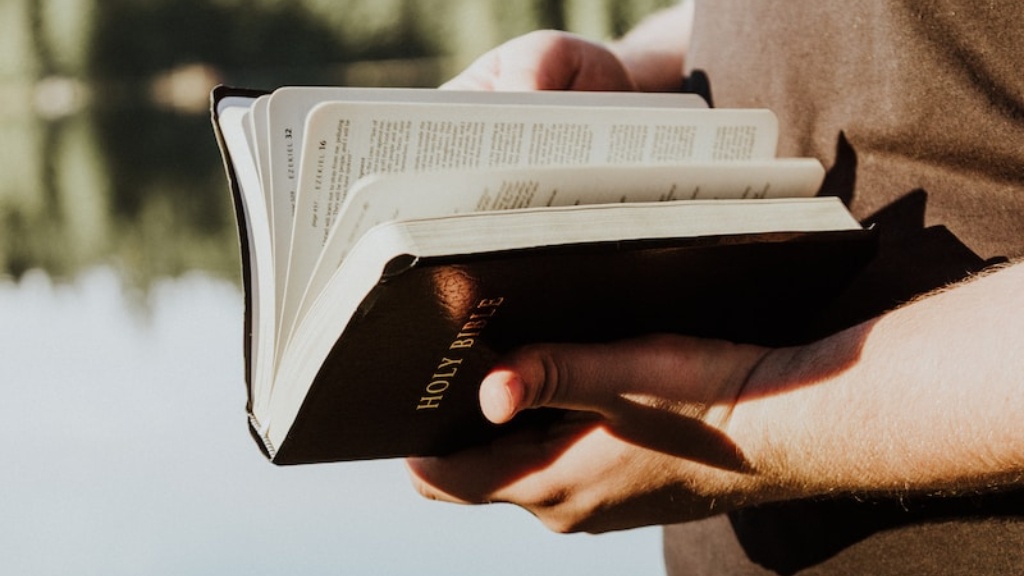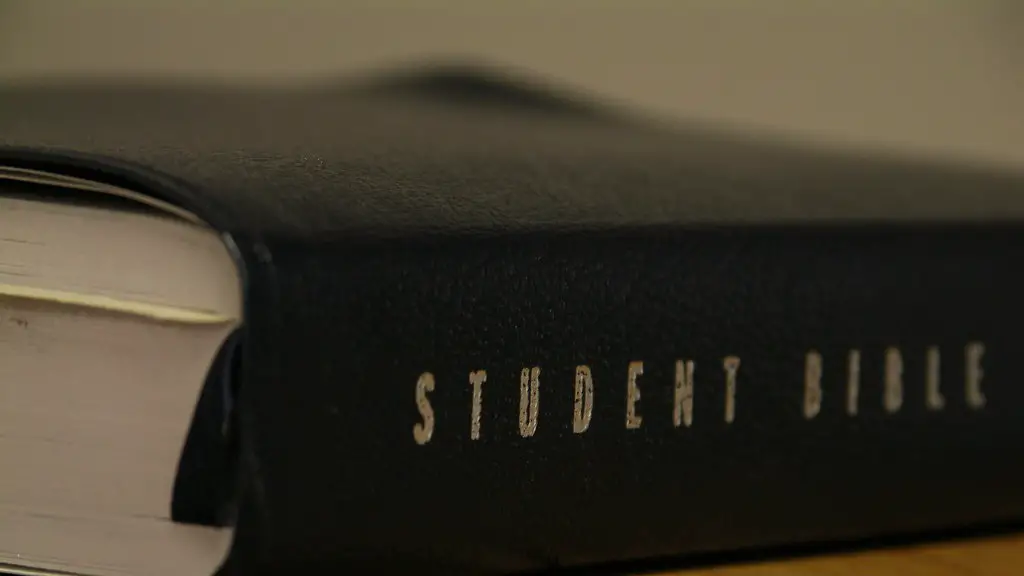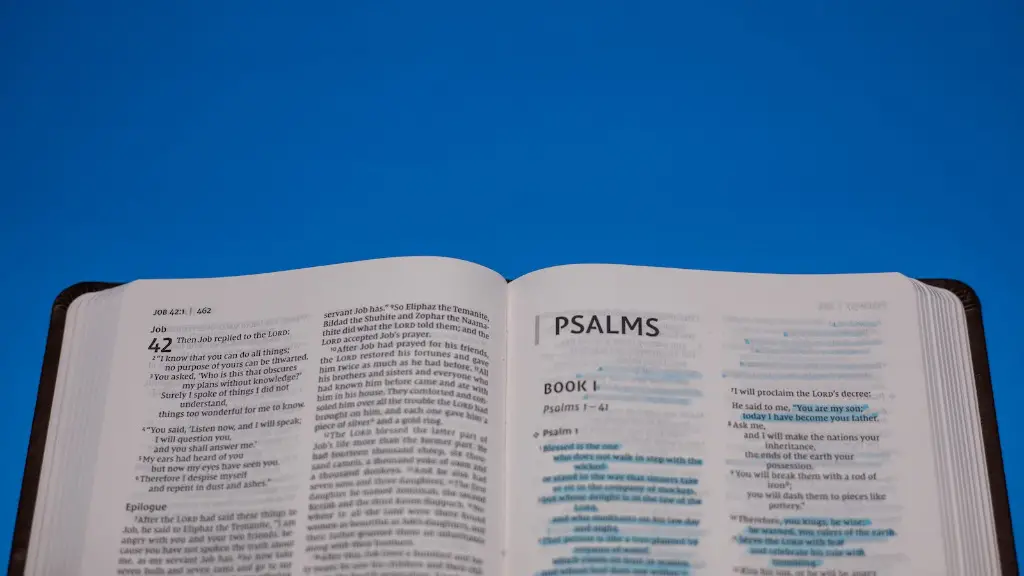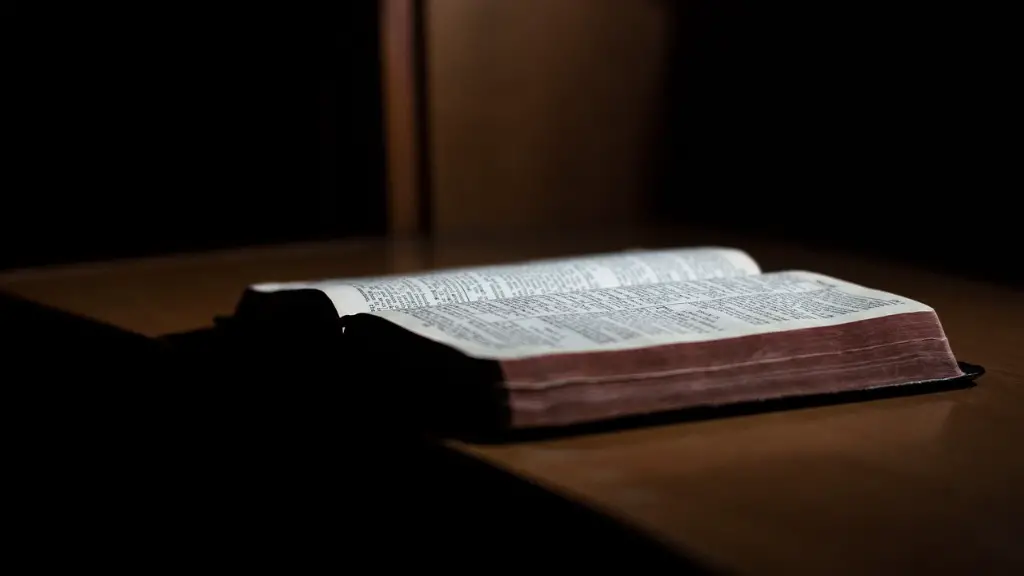The bible is a very important source of guidance. For many, it is an unchanging source of truth that shapes how they live their lives. But, some may be unfamiliar with the bible’s stance on praying to Mary, mother of Jesus. This article seeks to explore what the bible says on the matter, providing background information and relevant data, while giving due consideration to experts’ perspectives.
The bible mentions Mary by name in more than 50 passages. She is described as ‘blessed’ and ‘highly favored.’ The majority of these scriptures refer to her virginal conception of Jesus, a miraculous event that only she experienced.
The New Testament, specifically, speaks of Mary as a woman of tremendous faith. During the annunciation of Jesus’ birth, when the angel Gabriel told her she would give birth to the son of God, Mary accepted it with a profound level of trust. Consequently, she is often referred to as the ‘Mother of Faith.’
Despite the special place Mary holds in the bible, it does not directly promote praying to her. In fact, the bible only references prayer to Mary indirectly, which is why it can be a divisive issue.
For example, some may point to the biblical instance when Elizabeth lauded Mary as blessed among women and asked her to pray for her. This, however, is not seen as an explicit invitation to pray to Mary, as Elizabeth has a special position in the bible as the mother of John, the Baptist, who was sent to prepare the way for Jesus.
Further, there is some debate over the Rosary, a Catholic practice that includes praying to Mary, with some experts viewing it as a prayer of petition and others seeing it as more of a meditative prayer. Regardless, according to the bible, it’s clear that the focus of our prayer should always be God.
Many contemporary Christian leaders feel that, while the bible may not explicitly state that we should pray to Mary, it’s not necessarily forbidden. Rev. Dr. Christopher Benek, pastor of Trinity Presbyterian Church in Florida, believes that “the bible does not explicitly encourage Mary worship, nor does it forbid respectful requests for Mary’s intercession.”
Ultimately, the bible does not explicitly forbid or support praying to Mary. But, it does emphasize the need for faith and trust in God, as well as the importance of prayer. How individuals interpret these teachings, however, can vary from church to church and person to person.
Intercessory Prayer
Intercessory prayer is a specific type of prayer in which one person prays for another. This type of prayer is seen as a powerful tool to obtain help from God when certain circumstances or situations are beyond our control. Many Christians believe that Mary, in her blessed state, can offer intercessory prayers to God on our behalf.
In Catholic theology, Mary has an almost unrivaled capacity for intercession. It is a common practice in Catholicism to ask Mary to pray for us and to give thanks for her intercession. This practice is based on the belief that Mary will always intercede with God on behalf of her children and that her prayers are particularly effective.
This view is supported by New Testament scriptures where intercessory prayer is implicitly encouraged. For example, an angel of the Lord told the disciples to “persevere in prayer” and in Jesus’ own words, he said, “Ask and you will receive.” This can be interpreted as suggesting that our prayers should be made with full faith and trust that God will answer them.
Not everyone agrees with this view, though. Some Christians maintain that, while intercessory prayer is an appropriate and commendable practice, we should limit our requests for heavenly intercession to Jesus alone. However, even those who oppose praying to Mary may agree that we can ask her for help, understanding, and insight.
Cult of Mary
Opponents of praying to Mary often point to the Catholic Church’s veneration of her as evidence of idolatry and a ‘cult of Mary.’ While it is true that parts of the Catholic Church may exalt Mary’s role within Christianity, this should not be taken as a sign that they are encouraging the worship of her. In fact, the Catholic Church makes a distinction between worship, which can only be offered to God, and veneration, which is the respect for a person’s holiness and faith.
It should also be noted that the Catholic Church is only one of many branches of Christianity, and its views on prayer do not reflect the views of all Christians. Other denominations, such as the Eastern Orthodox and some Protestant churches, may have different practices with regards to praying to Mary. Therefore, it’s important to understand that there may be different interpretations of this practice among different churches.
Most churches, however, agree that reciting the Hail Mary prayer is not necessarily worshiping Mary, but rather a way to honor God through honoring Mary. This prayer, popular among Catholics, is seen as an invocation of the communion of saints and a way to look to the mother of Jesus for guidance and comfort.
Ultimately, it is up to each individual to decide how they interpret the bible and whether they believe praying to Mary is an appropriate practice. There is no one right answer, and it is a controversial issue that requires thoughtful consideration and sincere prayer.
Alternate Viewpoints
Not all Christians view the bible in the same way when it comes to praying to Mary. Some may see it as a devotional practice that can bring them closer to God, while others may view it as idolatry. However, both sides agree that the bible does not explicitly forbid or promote the practice.
One of the alternate viewpoints is that the bible promotes asking Mary for guidance, rather than praying to her. This interpretation is based on the idea that Mary is a woman of great faith and that she can provide us with spiritual wisdom. This is supported by passages such as the Magnificat, where Mary acknowledged the power of God’s grace, and Luke 1:28, which shows us that she accepted God’s plan for her with deep faith.
This alternate viewpoint is seen as a way to honor Mary as both a mother and disciple of Jesus, without having to pray directly to her. According to some Christian leaders, seeking Mary’s wisdom and insights is not a form of worship, but rather an act of trust in God’s will and plan for our lives.
Most Christians, however, agree that prayer should always be directed to God alone. This is based on the idea that God is the one and only true deity, and to give prayers to any other person or entity can be seen as idolatry. The bible reinforces this by stating that there is no one that can compare to God in his glory, power, and knowledge.
Personal Reflection
Personally, I believe that the bible does not explicitly encourage us to pray to Mary. In my experience, prayer should always be directed to God and no one else. That said, I do acknowledge and appreciate the special place Mary has in the bible.
When it comes to intercessory prayer, my belief is that it is appropriate and powerful – as long as it is directed to God and not to any other figure. That said, I think that it may be helpful to ask Mary for insight and wisdom, particularly during times of difficulty.
I also respect those who may have different perspectives on this subject, as it is a sensitive matter that can be interpreted differently. individual to individual. Overall, I believe it’s important to keep an open mind, remain rooted in scripture, and follow the guidance of our faith and conscience.
Jewish Viewpoint
For Jews, the issue of prayer to Mary is viewed even more differently, as they do not identify with the Christian belief in Jesus’ divinity. Accordingly, they do not recognize Mary’s role as the mother of God, nor do they view her as a source of intercession.
Most Jews do believe, however, in an intercessory figure known as the Shekinah, a feminine representation of the divine. The Shekinah is seen as a natural mediator, symbolizing God’s divine presence on Earth. Some believe that this figure is prefigured in Old Testament passages, such as Isaiah 66:7-14, which speaks of God’s divine presence among humans.
While Jews may differ from Christians on certain points, they both have in common the belief in the power of prayer. Prayer can bring us closer to God and provide comfort, strength, and guidance. Whether you believe in praying to Mary or not, all agree that prayer is a powerful tool, and one that should not be taken for granted.
Evangelical Perspective
Evangelicals tend to be more critical of the practice of praying to Mary. They often take issue with how Catholic and other Christian denominations may venerate her, believing it to be idolatrous.
At the same time, some Evangelicals may recognize Mary’s special role in the bible, acknowledging her as a woman of faith and the mother of Jesus. Most, however, still draw a line between honoring Mary and praying to her.
Supporters of prayer to Mary may point to the Protestant roots of the practice. For example, Reformers such as John Calvin and Martin Luther held that Mary should be esteemed and honored, but that no prayers or worship should be given to her.
Ultimately, Evangelicals favor direct communication with God over praying to Mary or any other figure. This belief is based on their view of Scripture, which paints the Trinity as the sole recipients of our worship and prayers.
Conclusion
The bible does not explicitly condone or forbid prayer to Mary. While some churches may recognize her as an intercessor, and some may accept her as a source of guidance and wisdom, the ultimate focus of our prayers should always remain with God.
Ultimately, it is up to each individual to decide how they feel about praying to Mary and to form their own beliefs based on their understanding of Scripture. By cultivating a thoughtful and prayerful attitude, we can come to a greater understanding of what it truly means to honor God.





